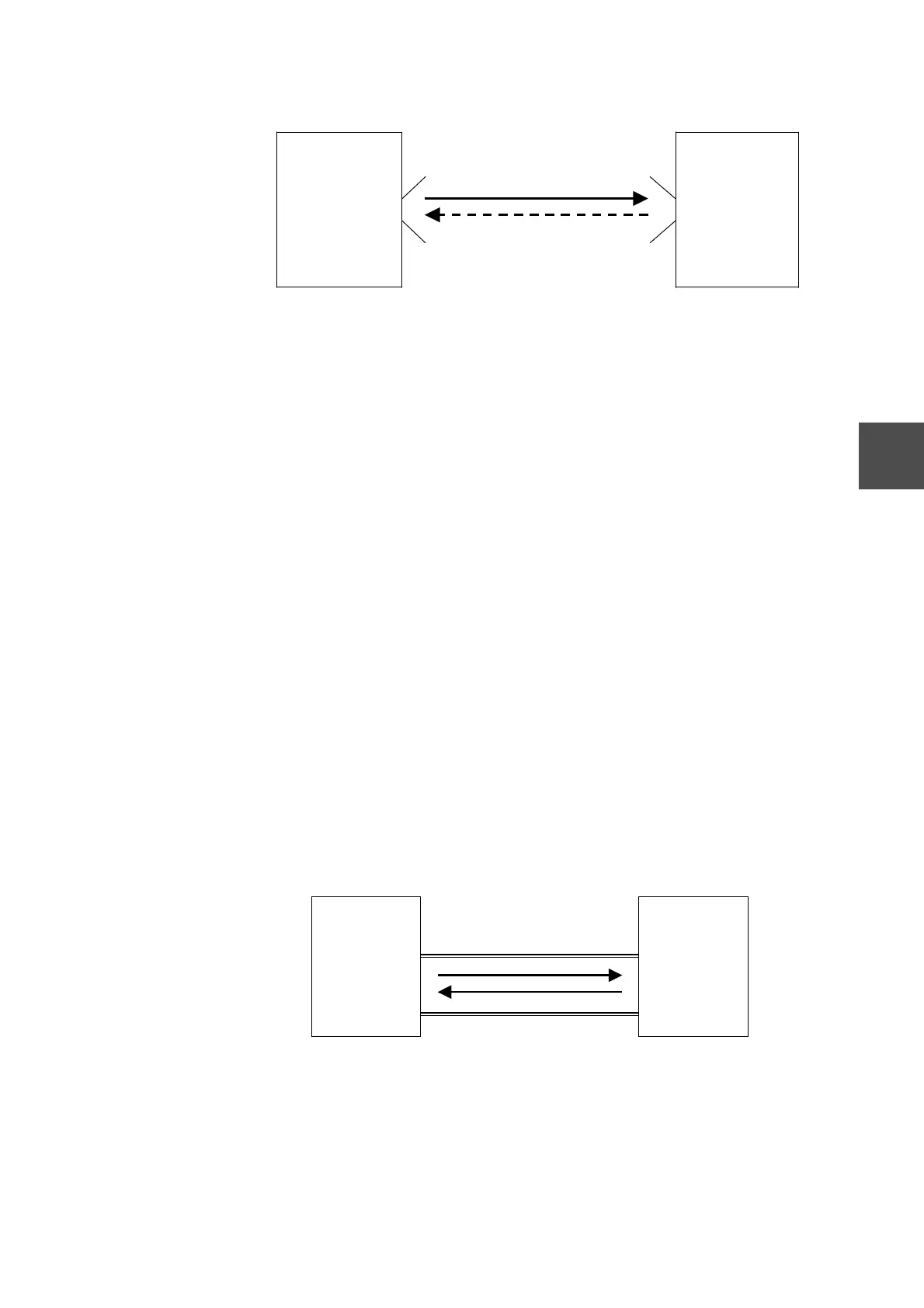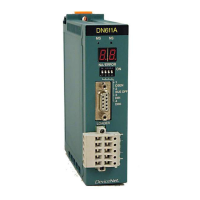6F8C0904 89
6.1 Overview
6
Figure 6-2 UDP Sockets
(b) TCP socket interface (See Figure 6-3 and Figure 6-4.)
• In TCP communication, a pipe-like virtual communications line (connection)
is established between sockets on two nodes that are communicating (send-
ing and receiving), and since the protocol handles control of reception verifi-
cation and retransmission processing, it provides a highly reliable
communication.
• There are two methods for establishing a connection: passive open and
active open.
• In passive open, the local socket is put into a state in which it is waiting for a
request to establish a connection from another node. In active open, a
request is issued for the establishment of a connection with a socket in the
passive open state.
• When establishing a connection between two nodes, one node must first
open a socket in passive open mode, and the other node must perform an
active open on a local socket with respect to a remote socket that is in the
passive open state.
• Since the passive open socket node "provides" data transmission and other
services, it is called the "server."
• Since the active open socket node "requests" services, it is called the "client."
• A socket for which a connection has been established is unable to transfer
data with any other sockets unless that connection is first released.
• Since sockets are connected by connections, there is no need to specify the
transmission source or transmission destination with every data item trans-
mitted.
Figure 6-3 TCP Socket (Connection)
Source node
Destination node
UDP socket
UDP socket
Data transmission
Reception verification
(only if implemented by the user
program)
Source node Destination node
Client
TCP socket TCP socket Server
Connection
Active open
Data transmission Passive open
Reception verification

